I hope I will not be misunderstood when I say that the cause of British decline, painfully evident to everybody in the country, is more spiritual and moral than it is political or economic. In saying this, I do not mean to suggest for a moment that we do not have severe, long-running, structural problems in our politics or economy – don’t get me wrong. But the more pressing concern is the pervading sense of malaise that has spread itself across the country like a miasma. A country that is confident in its own skin and which is animated by a shared sense of belonging can solve most practical problems in the medium to long term. But we’re not that sort of country; we are more or less its exact opposite. This does not bode well. There may be trouble ahead – and not, I’m afraid, a great deal of moonlight, or music, or love, or romance.
On an extended cross-country tour this summer, taking in swathes of the north of England, I found myself reflecting at length on our predicament. And I was struck, again and again, by the sense that this is a country which has a strong, if unstated, awareness that at some point in the recent past it lost something important – but that it does not really have the words to describe what that thing was, let alone the wherewithal to find it. If I could reach for inadequate and inaccurate metaphor, it is as though the country is plagued by the feeling that one gets when one has stood up and walked into a room in the house and forgotten why one did it or what one was intending to do there; or, alternatively, the sense that one gets when one finds oneself wandering around a supermarket with a vague notion that one is forgetting some item or other that one intended to buy but did not put on the shopping list. There was something ‘there’ once. But whatever it was has gone.
Where a problem is spiritual, as ours is, it must be confronted in spiritual terms. And it is important, then, that we reach for spiritual tools. We have to identify, and then properly mourn for, that which we have lost – and embrace the despair that arises from knowing that it will not return. This is because, as Kierkegaard teaches us, it is, paradoxically, only in acknowledging despair that we are able to hope. By knowing despair – by knowing that good things come to an end – we are reminded that we long for the eternal. In confronting contingency we are given the opportunity to reflect on that which does not change, or disappear, or finish. For Kierkegaard, this meant God, but it of course could be something more diffuse than the divine as such – that which is simply and unchangeably good, and true, and just, and right.
Kierkegaard was no critical theorist, and he sought to convey no political message. Despair allows us to acknowledge that there are things in the universe that are simply and unchangeably good, and true, and just, and right, but this acts as no call to arms or manifesto to revolution. The dead cannot be brought back to life and that which has vanished into the past cannot be recovered. But we can at least, through our despair, gain a clearer understanding of where we really are. And this in itself can help us to orient ourselves properly in responding to our predicament. The aim here is not to get ‘back on track’, if we were ever on the right one to begin with. It is rather to confront matters squarely, and honestly, so that we can reconcile ourselves to what has happened, and thereby reconnect with what it might mean to trust to hope once more.
In that spirit, then, bear with me while I indulge in a bit of mourning of my own.
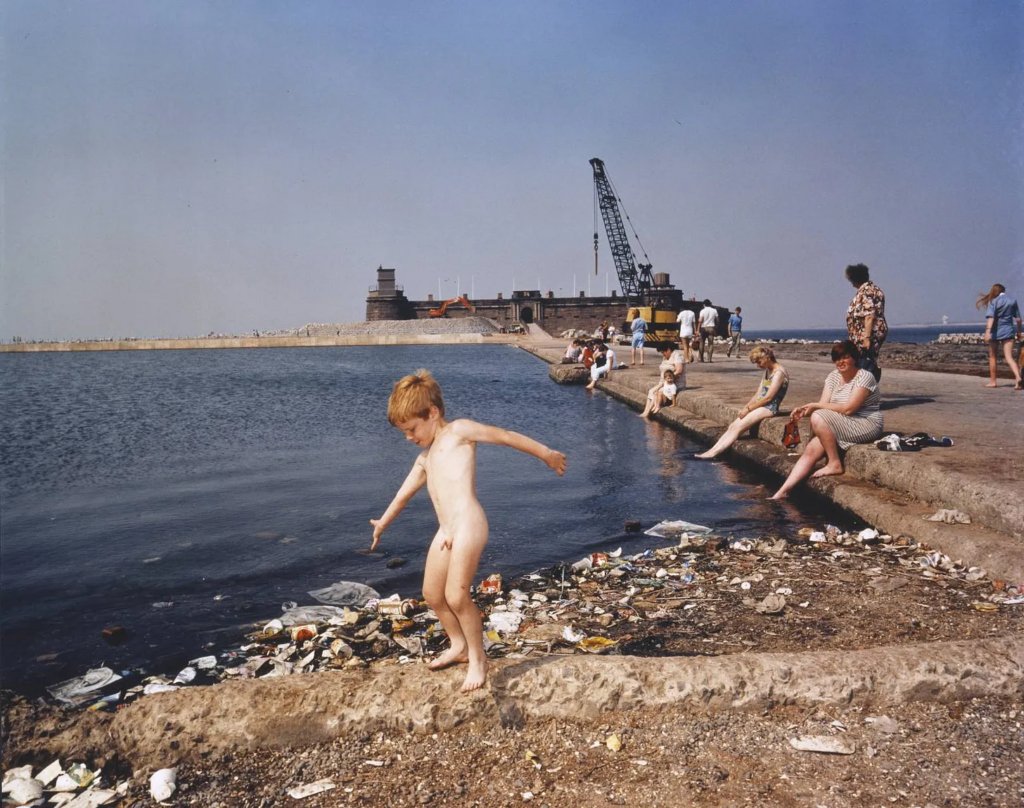
The photo that appears above was taken in the early 1980s by a photographer called Martin Parr, in my hometown of Wallasey. Wallasey lies at the end of the Wirral peninsula and faces Liverpool across the Mersey, and Ireland across the Irish Sea. I was raised in the area known as New Brighton – a seaside resort of faded elegance which, at that time, was at a very low ebb. At one point in history it was a place where working-class people from across the North of England would have flocked to spend their holidays. But by the early 80s it had become a place where people from the surrounding area would go for a day out in summer to play on arcade games, eat ice cream and fish and chips (not necessarily in that order), and sunbathe. You can think of it as the epitome of what Morrissey was singing about in the song ‘Every Day is Like Sunday’: “the seaside town they forgot to bomb” could have been New Brighton’s motto – or epitaph.
I would perhaps have been slightly too young to have been the boy in that photograph – I was born in 1981 and I think the picture was taken around 1983 – but I do remember the world that was depicted in it, albeit perceived in a dim light and through a foggy ambience that has to be squinted past.
It was by no means a privileged world. I do not mean to exaggerate this: growing up in the New Brighton of the early 1980s was certainly not like growing up in a favela in São Paulo or a township in Johannesburg, nor even like growing up in a poverty-stricken exurb of Liverpool. And parts of Wallasey were, and are, quite posh. But my neighbourhood was a relatively humble one. People made do. We couldn’t afford foreign holidays or dinners out; my family couldn’t even afford a VHS player until we were given a hand-me-down by somebody or other when I was an adolescent. We ate crinkle-cut chips and corned beef followed by a slice of Vienetta at my Nana’s house in Tuebrook once a week on Sunday and thought it luxury. We didn’t have grand ambitions or career aspirations. We didn’t know people who went to university. Things changed over the course of the decades, but this is the context in which I spent my early childhood; this is exactly what it looked like where, and when, I grew up (all these photos are from Parr’s excellent The Last Resort: Photographs of New Brighton).
The people depicted in Parr’s images are ordinary men, women and children living ordinary lives. And that is indeed all that they expect out of life. They go to school, work and church, have hobbies or are involved in community groups, and they make ends meet. Now and again they get a day out at the beach. They don’t think the world owes them anything. And nor are they bothering anyone. They inhabit a largely coherent culture, and their main aim in life is to ensure that their children will be better off than they are.
It is of course important not to romanticise them. The people depicted in these photos – as anyone familiar with the working classes of the British Isles will attest – have quite a strong cultural disposition against the finer things in life. Their stance towards self-improvement is to be mildly suspicious – as, for that matter, is their attitude towards good food, good music, foreign languages and so on. They say things like, “Who do you think you are?”, “Get your finger out of your arse”, “What would you want to do that for?” They think university is for poshos; they are against the very notions of private education or private healthcare; there is a streak amongst many of them that thinks reading too many books is a sign of some hidden character flaw. They are not bad people, but they are not good people, either: they are the best that can be hoped for in this vale of tears – they are ordinary, normal, ‘common’.
All of that being said, however, it is impossible for me to look at these photographs objectively; they draw out of me a feeling of indescribably visceral nostalgia for that lost, pre-internet world. I look at them and, like Neil Sedaka, miss the hungry years. Things were grubbier, pettier and smaller in those days. But people related to one another as fellow human beings, and that counted for a lot. It meant that to grow up in that environment was to grow up swathed in a social fabric that was warm, comforting and familiar, for all that it was made of cheap hand-me-down material. As I grew older I rebelled, and sure enough at the age of 18I fled, as far away as I could get. But I understand now that the fact that I had it in me to strike out alone in that way – going off to university at the other end of the country and then, after graduating, going to live in the most distant place in the world that was practical to get to – was itself thanks to having the inner resources bestowed on me by having been brought up in an environment that, despite its relative poverty and small-mindedness, was nurturing and encouraging.
In many ways, then, for all its dullness and the narrowness of its horizons (and for all that it is embarrassing for middle-aged people to reminisce fondly about their ‘jumpers for goalposts’ childhoods) the world of my youth was a happier one than ours. Communities were still strong; the social fabric was still dense; it may be the stuff of cliché, but kids really did use to play outside unsupervised all day until teatime; we were present in a way in which people who grew up in the era of smartphones cannot possibly understand. I hope I’ll be forgiven for becoming sentimental when I recall that people used to go about their day whistling or singing to themselves rather than listening to some private something-or-other on their headphones or airbuds. I’ll become more sentimental yet when I recall how children used to call any benevolent adult (of whom there were many) ‘auntie’ or ‘uncle’, and that wherever one went, one was never more than a hundred yards from a newsagent or corner shop whose owner would watch out for you if you were in need and who almost certainly knew your mum or dad.
(I belong to the last generation to whom supermarkets and box stores were not a feature of early childhood; within literally two or three minutes’ walk of the suburban home where I used to live there were half a dozen newsagents, several hairdressers and barbers, a bookshop, a shoe shop, a carpet shop, a few chemists, a laundrette, a delicatessen, a couple of butchers and greengrocers, various bakeries, a few hardware/DIY shops, numerous pubs and cafes, many bookmakers, a bank and three post offices – almost all of it now gone.)
It was a world, then, that was characterised by considerably more warmth than ours. And I am glad to have grown up in the circumstances in which I did – to have been taught to be polite, to eat what is put in front of you whether you like it or not, to talk in the appropriate register to old ladies, to have a proper telephone conversation, to make change when buying something at a shop, to live and let live. All of that has stood me in good stead. Though I didn’t understand it at the time, it equipped me to be an adult – something which in light of today’s social and cultural landscape is not to be taken for granted.
The world that I grew up in, though, is gone. And it is important to recognise and accept that times have changed. Change is not of course evenly distributed. It is striking, for instance, that Wallasey people are still Wallasey people – the town has its own distinctive variation of the ‘Scouse’ (Merseyside) accent, easily discernible to the trained ear, and I still hear that unique cadence whenever I visit. Some of the old haunts remain, for all that the town’s population of pubs has been decimated. And, while civilisation has a sense of being under siege in a way that it never really did even in the bleak 1980s when I was growing up, it nonetheless remains – people still chat to one another in the shop, let their kids play together in the park, keep their gardens tidy, and so on.
It is also necessary to concede – never easy for somebody of a conservative disposition – that some aspects of life have got better. There are big material improvements here and there (hipster micropubs and breweries, nice bistros, much cleaner beach and parks). Property crime (Merseyside’s main claim to fame when I was growing up) has declined. People, as one would expect, have nicer stuff – better cars, better furniture, better clothes, obviously better technology. There is no doubt that the cuisine has massively improved. It probably goes without saying that it is a good thing that the kind of homophobic bullying that used to go on in ‘my day’ now simply doesn’t take place. And it is a good thing that the world caters much more sensitively to people who are disabled.
But it has to be observed that for the most part what improvements have taken place have been in the field of consumption, and that they have to be set against the creeping atmosphere of decay that is slowly spreading itself across all other aspects of life. The parts of Wallasey that were poor in 1981 have taken on a genuinely dystopian aspect in 2024: the poverty is just as bad, or worse, but now people do not even have the consolations of family stability, community or church to get them through. Religious institutions which once sustained a rich – and, importantly, largely voluntary – scene of community groups and activities have simply vanished (the big church where I used to go to cubs and scouts, for example – basically free activities for local children – is now a gym with expensive and exclusive monthly membership plans). The central shopping area has become a bleak wasteland; there is a pervasive sense there not so much of encroaching menace as encroaching sorrow – as though, if one were to stay there too long, one would become submerged under a gloop of dreariness from under which one could never again emerge. A community which once grasped for middle-class respectability in habits of dress, manners and shopping habits is now characterised by shabbiness and sullen rudeness. There is no feeling of aspiration – just a desperate clinging-on.
The parts of the town that are more prosperous, meanwhile, have retained and sometimes even expanded their prosperity, but the people who live in those areas suffer from the same vices as bourgeois people nowadays do everywhere – the depression, anxiety, atomisation and loss of meaning with which everybody in the West is now intimately familiar. Again one gropes towards cliché, but whereas when I was a child life felt as it was lived in the open – my parents always seemed to be engaged in conversation with neighbours over the back garden fence or sitting out on the front doorstep; kids were always roaming around knocking at each other’s doors to ask, “Are you coming out?” – the sense now is that social life has become closed-in: taking place hidden away behind doorways, carefully pre-planned, and occasional rather than constant. People exude not so much loneliness as alone-ness – a sense of splendid isolation: every man for himself and God against all.
At some point, in other words, it seems as though a decision was made, though none of us made it explicitly or consciously, to sacrifice features of life that made us content, and that were supportive of children and families and therefore community, in order to pursue consumptive goals that made us superficially comfortable, but at the same time more solitary and inward-focused – not in the sense of being more introspective, but rather merely more self-involved. This has, I think, made life objectively less meaningful, narrower and less pleasant.
Recognising this (I am of course far from alone in doing so) is – I choose the word carefully – enough to make one sad. We have made for ourselves a society which is, for the most part, a worse one in which to raise children than that which existed 40 years ago. And it is entirely appropriate to despair as a consequence of that recognition. But reflecting on the past in this way also allows us to make some general statements about the prevailing state of affairs and thereby orient ourselves towards the future.
The first such statement is that most of us have a pretty firm idea about what was good about the past, and what it is we have lost: extended families and indeed family stability, community cohesion, religious affiliations (often benignly agnostic), and a sense of contributing to something greater than oneself. This is not rocket science. And the reassuring news is that, once recognised, a lot of these goods can in fact be rediscovered and re-embraced. It is possible to work on one’s bonds with one’s extended family, to join (or start) community activities, to go to the local church, mosque or synagogue, to volunteer, to take on Jordan-Petersonian responsibilities and tidy one’s room. There is nothing really stopping anybody from doing any of those things, except in extremis. Meaning can be found. This is obvious, but bears repeating.
The second thing to say is that the world is now much colder than it was, and its spiritual health is in precipitous decline. But it is also a world in which superficial pleasures are more readily available – Netflix, fancy watermelon-infused IPAs, ubiquitous pornography, UberEats, AirBnb getaways in obscure European cities, the entire litany. At the moment, we remain at a kind of pre-inflection point at which these superficial pleasures are a sufficient salve for most people for the psychic pain that comes from loss of meaning and human connection, but that is a situation that cannot last. We are due a reckoning with modernity itself – I direct your attention to earlier writings on this topic – and there will soon come a point at which we are forced into a confrontation with merciless reality. At that stage all of the YouTube videos in existence will be no consolation whatsoever for the pain associated with what will unfold. In short, in the long-term the meaning crisis will take care of itself and we will return to a more humane mode of being, though the process will not be pleasant.
The third thing to say is that it is possible to, as it were, read modernity against itself. There is a great boon available to us which was not available in 1981 – namely, the ability to connect with like-minded people at the touch of a few buttons and the clicking of a few mice. One could add to this the ability to access knowledge and wisdom that was simply unknown to the average person born into humble circumstances in a previous era – and to tap into the entire canon of collective human accomplishment in the arts, literature and so on, to boot. There is no need to be mired, then, in soul-sickness, for all that it is pervasive; there are consolations, and they are in themselves good.
In understanding what we have lost, then, and in reflecting with appropriate despair, it is possible to reconcile ourselves with what has become of our society and, in so doing, act – not in order to restore what has gone forever, but so as to productively engage with the future that emerges before us. Things will get worse before they get better. But, to return to where we began, that which is good, and true, and just, and right, does not change, and in the fullness of time will reassert itself as in the end it always does. Despair, then, ought properly to lead to hope. The two are connected, as day follows night – and dawn will come, for the simple reason that it must.
Dr. David McGrogan is an Associate Professor of Law at Northumbria Law School. You can subscribe to his Substack – News From Uncibal – here.
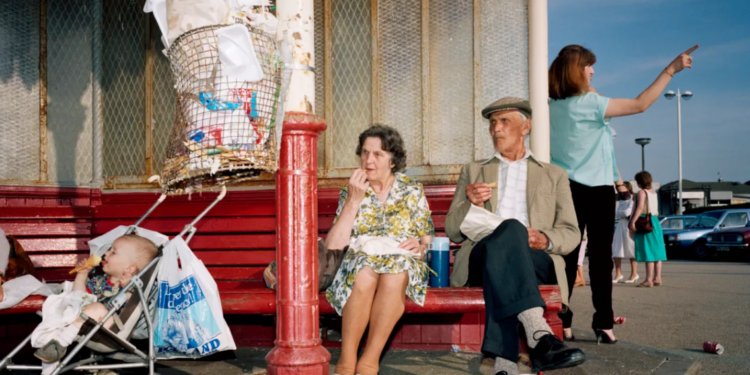
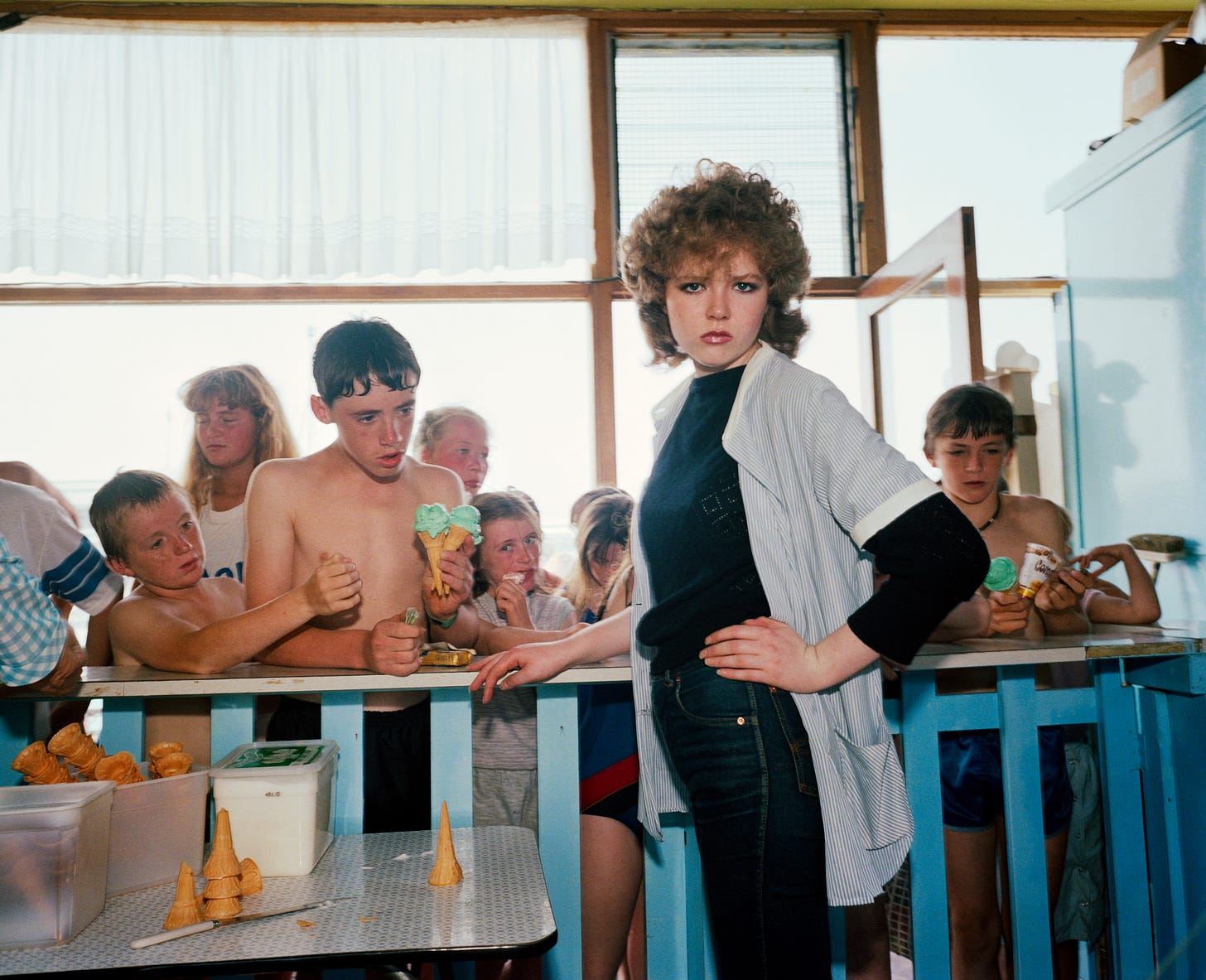
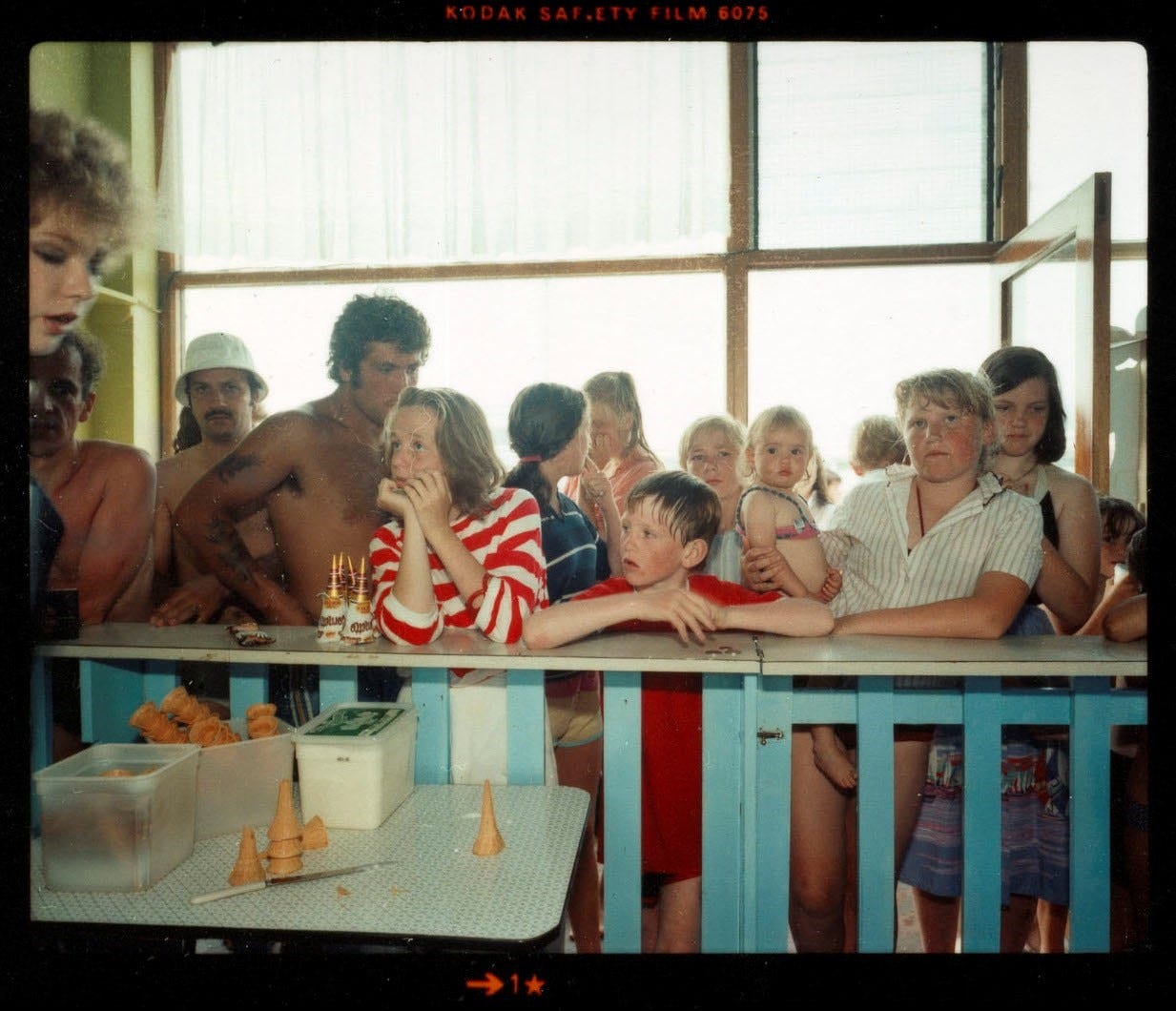
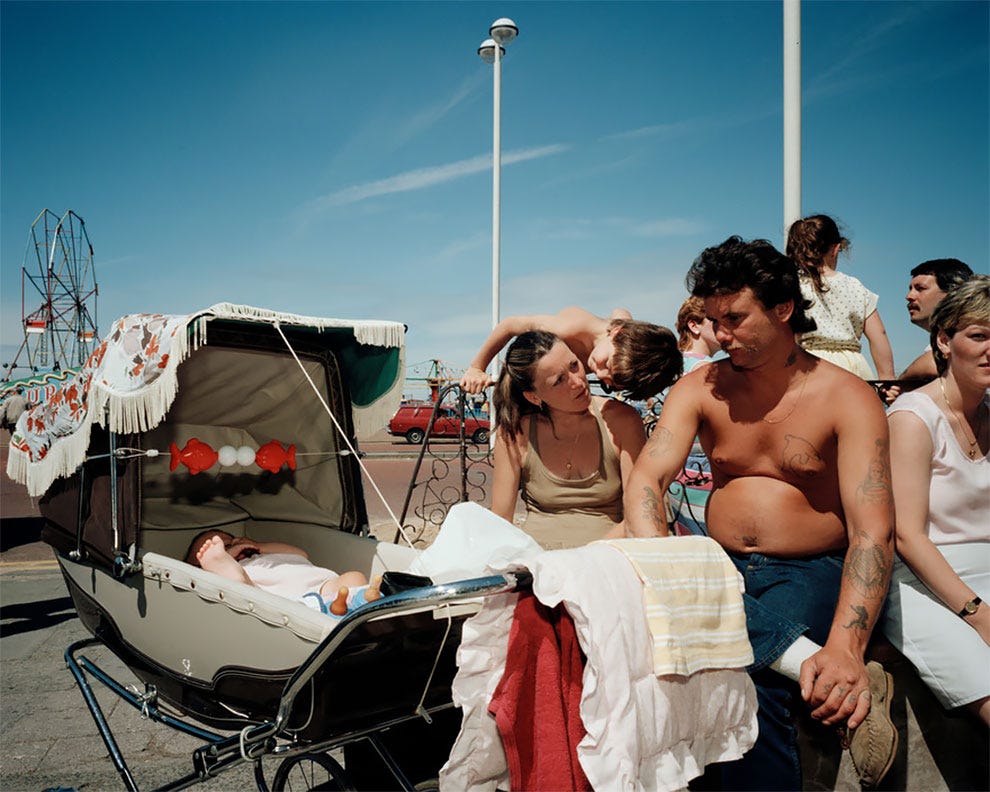
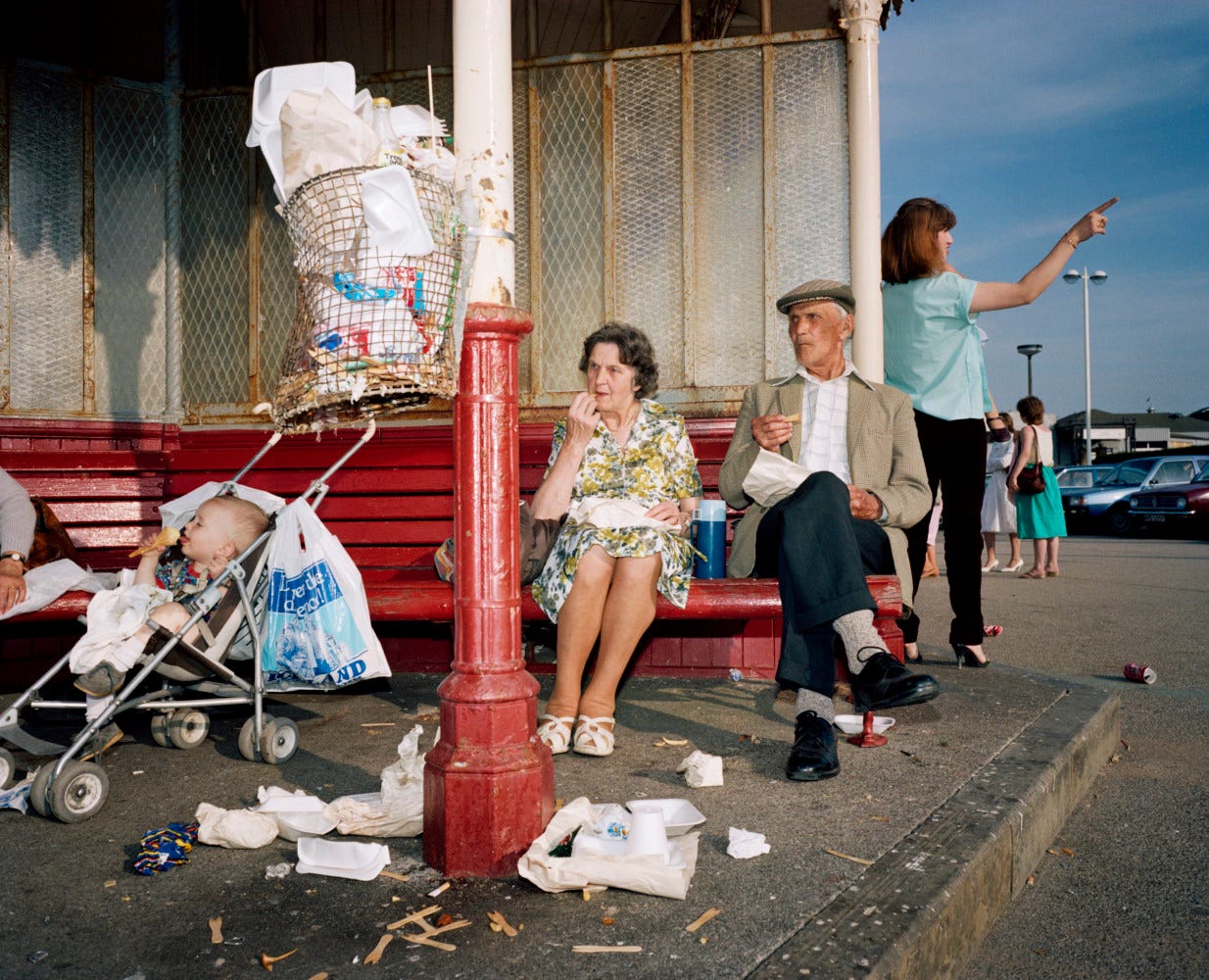
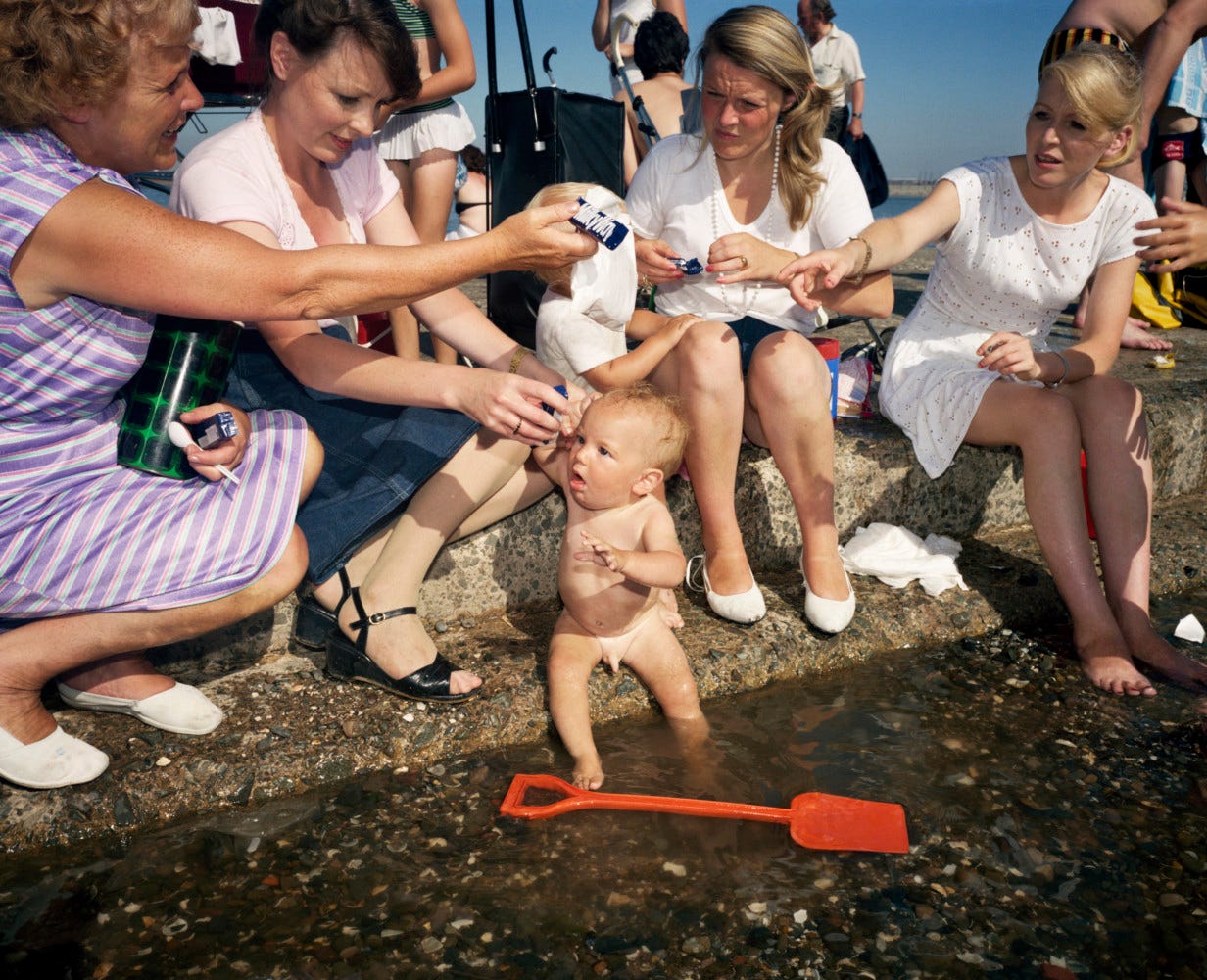
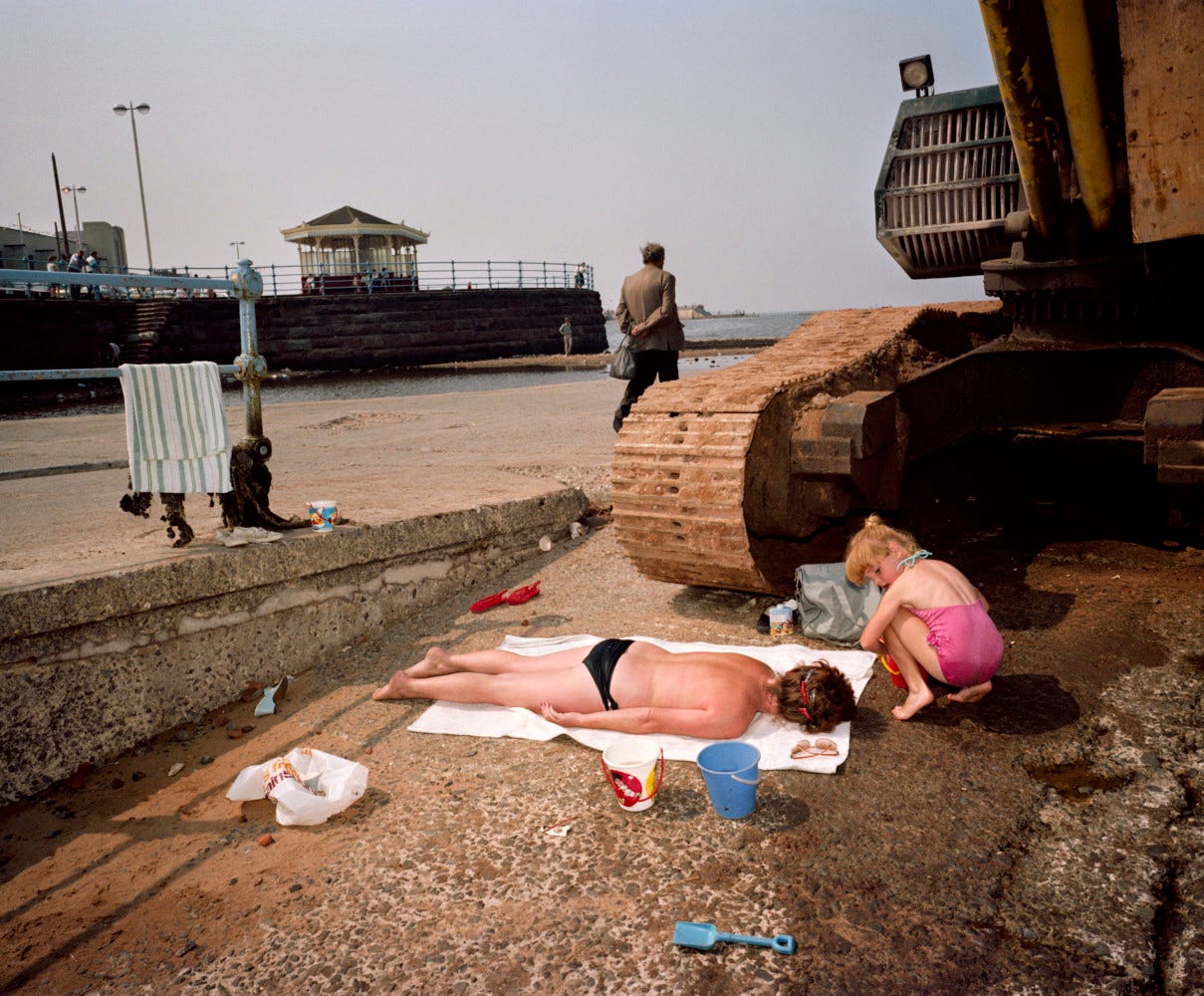











To join in with the discussion please make a donation to The Daily Sceptic.
Profanity and abuse will be removed and may lead to a permanent ban.
The cradle-to-the-grave welfare-state 1948 onward began the slow transfer of self-reliance, self-responsibility, self-discipline, self-sustainability, self-respect, self-confidence, autonomy, and individual sovereignty to the State.
We are now an infantilise nation of people, the majority of whom cannot look after themselves or think for themselves.
Satan said, all the World I shall give you if you will bow down and worship me. The British in 1945 gave their souls, spirit, integrity (as you wish) for the welfare State.
Not all the British, but certainly all the Influencers, those on the Left in Politics and in the Media: but then, I am repeating myself. And you can add the State Sector, especially Education.
It is the assumption that there’s no need to think of the consequences, because the NHS and the Welfare State are there, and the Labour candidate! There’s no need to think. Ironically, it can be outsourced.
It’s not what that Party has in its manifesto, it’s that you don’t have to think, beforehand, of the consequences of any action, except when it’s planned by the experts, those in control, and where anything missed can be put down to lessons to be learnt: but they aren’t.
Institutionalising human nature has never worked, and never will.
As well detailed here – essential reading
https://en.wikipedia.org/wiki/The_Road_to_Serfdom
“The Road to Serfdom is a book by the Austrian-British economist and philosopher Friedrich Hayek. In the book, Hayek “[warns] of the danger of tyranny that inevitably results from government control of economic decision-making through central planning.”[1] He further argues that the abandonment of individualism and classical liberalism inevitably leads to a loss of freedom, the creation of an oppressive society, the tyranny of a dictator, and the serfdom of the individual. Hayek challenged the view, popular among British Marxists, that fascism (including Nazism) was a capitalist reaction against socialism. He argued that fascism, Nazism, and state-socialism had common roots in central economic planning and empowering the state over the individual.”
But no matter how often this lie is being repeated because all people playing US domestic politics games really want is label their opponents as Nazis whatever their political goals and opinions are, it won’t become truer because of this.
So-called socialists and so-called neoliberals or “objectivists” share a common political dream: Overcoming the state as obsolete obstacle of former times in order to reach a state of ‘blissful’ communal anarchy. Both so-called socialists and so-called objectivists have found that putting this into practice wasn’t as easy as they had hoped.
So-called socialists were practically hampered by the fact that they staged an artificial revolution, ie, not a true uprising of the impoverished masses of industry workers, in a country which was really a huge rural backwater at that time. Hence, they were forced to construct the kind of industrial society their future should arise from from scratch first which necessitated a strong state forcing societal change (“industrialization”) which wouldn’t have happened without it.
So-called “objectivists” never got (and probably, never meant to get) past the point of plundering whatever communal assets they could get their grubby hands on for their private gain. Thus, they begat the state whose purpose is to funnel taxpayer money into their pseudo-enterprises to guarantee the profits they expected to make from them and obviously, they not only didn’t manage to get rid of the state but ended up greatly expanding it’s reach because evermore human activities needed to be taxed¹ to subsidize evermore privatization.
In contrast to this, fascists (whoever ends up being labelled as that) stood in the ‘classical’ European tradition of considering the state a net-positive way of organzing human society and of means to reach some set of ideal goals which existed outside of it.
¹ Typical example of this: Buying a litre of petrol is sadded with an energy or CO₂ tax, purportedly because of “chlimage cange” or something like that, and the combined price is then again subject to VAT, ie, the neoliberal state ends up taxing (poor, not rich²) people for paying taxes.
² Due to the fact that the bulk of taxation is evermore ever-increasing indirect taxes which are paid on (taxed) income needed to pay for everyday needs. This means the higher the percentage of one’s income which has to be consumed is, ie, the lower one’s income is in absolute terms, the more aggressively this income is double- and triple-taxed.
Setting the stage for corporatism (Fascism)
I think McGrogan is suffering from a sense of loss of place and is mistaking nostalgia for real loss of cultural cohesion.
He , as an academic is at the heart of the problem , which is , collapse of debate and imposition by sanction surrounding academic ideas , cultural standards and belief systems.
Trained in Science , I have had my understanding of principles of developing and then proving a theory , demolished by practises in educational institutions across the world . The practise is that a dogma is taken on and then all who disagree are either intimidated into agreeing or dismissed if they continue to object . This is exemplified by the statement that 95% of academics in atmospheric science believe that AGW is responsible for Global Warming . There has never been a practical demonstration of this claim and yet any attempt to disagree is met with stonewalling and cancellation .
Dr McGrogan has clearly spent too much of his professional life not being challenged !
Nonsense. Peremptory judgement on one article. Sub to his Substack and you will find a learned man dissecting the mortal peril we are in.
I disagree. I think Dr McGrogan has hit the nail on the head. It is not nostalgia that drives his comments but a sense of real loss which is exemplified by the loss of Christian teachings and values which underpinned society whether you were a believer or not. I was born in the 1940s and recognise to a much greater degree than the author, what has been lost.
His point, I would suggest, is that there is hope that we will overcome the Devil and all that he offers in the so called comfortable and richer society but which is not, as we fight that Devil and love for one’s neighbour triumphs as that underpins the society that he described from his youth.
Really enjoyed reading this as so much of what David writes about and remembers resonates with me. I’m a few years older than him and so perhaps remember a bit more as I was in first school in 1981, and that free milk that had been stood for hours in a crate getting warmer, with the cream forming on the top was ruddy disgusting! lol I always said though, if I could hitch a ride in a time machine I’d go back to my favourite decade, the ’80s. The music was far superior, fashion was fun, society and culture was so different back then, and there certainly was more of a sense of community. Holidays for us were Blackpool, Scarborough, Whitby, and I’m pretty sure seagulls weren’t so aggressive then, whereas now they’ll dive bomb you whatever you’re eating, even ice cream.
Yes, barely any screen time pre-internet and only one telly in the house ( until I got one in my room as a teenager and thought all my Christmases had come at once ) so kids used to easily fill hours playing outdoors with friends or at each other’s houses with toys if it was rainy. We had landlines but kids used to just go round knocking on each other, ”Is so-and-so coming out?” and there were a million different games you’d play in the street or in the playground at school. We’d go ‘Halloweening’ with carved turnips as we’d only ever seen pumpkins on American TV.
I remember mothers used to park those big, bouncy prams outside shops if they were only popping in and out, because nobody worried about strangers abducting your baby back then. There seemed to be a lot more trust and the owner of the corner shop, where we’d get our Sunday papers, my mam’s ‘American Tan’ tights and 10p mix-ups, knew all the kids by name. I think nostalgia makes us filter out the less pleasant memories and realities of that decade, ( or whichever decade you remember fondly when you were growing up ) but I think that’s only natural. I get what David is saying though. It’s the end of an era and it’s never returning, no matter how wistfully we look back at these times. ”Time and tide…” and all that. So when grandparents used to say, ”Kids don’t know they’re born these days”, I now get what they mean. Now they want you to put the heating on in early October, rather than go and stick a cardie on, or they have a mental breakdown if the internet goes off briefly.
Of course we are all prone to nostalgia (30 years ago I wasn’t an old codger, to start with) but it’s definitely true that, in general people were happier.
I remember my teenage and student years. Nobody I knew suffered from mental health problems. Nobody I knew cherished some life-defining grievance just to give them an illusion of “identity”. It was possible to disagree with someone and still get on with them, rather than thinking they were deplorable. You had real, flesh-and-bone friends who you met up with in person, rather than virtual ones that live in their own bubble. You could complement a girl on their looks without them screaming at you. Most of us managed to form relationships and get married and have a normal life.
So yes, something went wrong and something got lost and yes, I think the current system is a pack of cards, sustained by lies, deception and delusions that will eventually collapse under the weight of its contractions. And of course, a house built on sand… well, you know the rest.
I remember that real a lot of people (at least in Germany, where the Anglo-Amercian bombing campaigns against civilian targets possibly still reverbated) were intensely afraid of the imminent nuclear armageddon and that regular peace demonstrations would draw immensely huge crowds. This extended to any nuclear technology, with mass protests erupting into civil-war-style street violence at the sites of the planned breeder reactor in Kalkar and the nuclear fuel recycling plant in Wackersdorf being a regular feature in the news. Even benign sounding development projects like building an additional runway for Frankfurt/Main airport (“Startbahn West”) attracted droves of anti-system protestors violently clashing with the police for years on end.
Society was also still intensely militarized, with all combatants of WWII maintaining huge standing armies on readiness for the final showdown whose members, facilities and exercises were literally everywhere — even in a rural backwater area like the Hunsrück, one couldn’t travel ten kilometers in any direction without encountering a large (usually American) military installation of some sort. This obviously added to the omnipresent “final days of mankind” war paranoia.
Lucky times these were not.
‘It is never difficult to distinguish between a Scotsman with a grievance and a ray of sunshine’
P.G. Wodehouse
‘Every Englishman is born a double Scotch below par’
Jeremy Paxman
This article must therefore be considered quintessentially British.
In fact, at least in England and Wales:
‘Suicide rates increased in all age groups in the 1930s, coinciding with the Great Depression. The highest male rates (30.3 per 100 000) were recorded in 1905 and 1934 and have since been declining. Female rates peaked in the 1960s (11.8 per 100 000), declining afterwards.
In both sexes the lowest recorded rates were in the 21st century.’
Nevertheless there is a slight rise in suicides over the last 10-15 years.
This coincides with an increase in recreational cannabis use.
‘levels were higher compared with ten years ago (year ending March 2013) for any drug (8.1%), cannabis (6.3%).’
ONS Drug misuse in England and Wales: year ending March 2023
‘…fourteen million people have used cannabis in the UK, making it the most popular illicit drug. While not everyone who uses cannabis will become addicted, 11% of users will develop a cannabis addiction, with that figure rising to 16% if you used cannabis as a teen.’
https://www.ukat.co.uk/addiction/drug/cannabis/
‘If you start smoking cannabis—especially the strong stuff, and most of it now is strong—regularly, say once a week from your mid-teens, your risk of developing a psychotic illness is five times higher than usual……’
https://www.bmj.com/content/380/bmj.p407.full
In short, the climate of northerly latitudes predisposes the natives of this country to gloom, despite evidence of major increases in prosperity and longevity over the last eighty years.
Added to which, increased ingestion of harmful chemicals may very well have made significant numbers of Britons totally batshit crazy.
Personal observation seems to bear that out.
I have to say it’s somewhat amusing that the author of these lengthy tomes of somewhat aimless learnedness is a full nine years younger than me. Cheer up, my lad, if you have fond memories of the 1980s, that’s because you were lucky to be young enough back then that you mostly missed them.
You sort-of have a point about homophobic bullying – there were two guys rumoured to be a gay couple at my school and they were abused so hard that one of them eventually jumped from a church tower during school trip – but, to be brutally honest, that was another guy who jumped to his death, and I’d gladly exchange that for today’s unholy duopoly of being alternatingly groped by “Wanna have some fun?” gays and framed as exemplary representant of the evil patriarchate by Lesbian hysterics and the violence which usually results from that, all of which having been socially sainted to point of being incapapable of doing any wrong regardless of what they do.
It’s quite possible, likely even, that the near-universal tendency to over-idealize the past, is simply that if we’re talking about an era like the 1980s, many of us were children then. I’m saying that there is an equivalence between a period that one grew up in (as a child or adolescent), and the time in recent history one is nostalgic for as the “good old days”.
But as we grow up we see the world through different lenses, and since a person is perhaps less carefree, energetic and adventurous in their forties than they were as an invincible teenager with no responsibilities, the perception of the world having deteriorated may be exaggerated as it is (in part) a projection onto the external world of a person’s psychological maturing over the years. The world we “see” is no longer the giant playground it used to be.
Of course there are aspects of bygone eras that were much better and it could be argued people were generally freer and more autonomous. But it is also coloured by the memories of our childhood, specifically.
I think it is true the warrior has to see the beauty in all things even in everything he loved being lost. So many beautiful words for nostalgia and similar states in so many languages. sehnsucht and saudade. The feeling is so deep now in our time. I wonder if we can be held responsible. Can anyone be blamed for going with the flow I’m sure we think so sometimes. I don’t think the realms of the spirit and the will can be talked about sensibly without care and understanding. You could poi to many milestones along the way to the wasteland. I remember a hurricane in 1987 which I felt to be portent of something malign. Peter Hitchens said that some time around 1990 we decided that the past didn’t matter anymore. Up until that point there was still quite a lot of respect for the classics and a feeling of fondness for our past.
If you still have the capacity for beauty and joy and serenity then consider yourself lucky because many have had it chemically or culturally erased. They live in a world of shades and have never known any different or have long given up hope of colour returning to life. Be happy that you still have the capacity.
“…the country…”
– I know something of France, where the expression “notre pays” – our country – is widely used. Why do we not hear this in Britain? Perhaps this is a symptom of the malaise described?
Nostalgia ain’t what it used to be.
It’s the internet and mobile phones. One of the saddest modern sights is a parent pushing a pushchair whilst looking at their mobile phone, which they find more interesting than their child. No society can function in the presence of such a malignant and widespread addiction.
Or someone walking a dog talking into her mobile.
Anyone on a mobile phone is not present.
Very real observations making for an extremely interesting read. Thank you.
McGrogan is on the nail all the time. I HIGHLY recommend his Substack, “News from Uncibal”, as well, Daniel Jupp’s “Jupplandia” who covers similar matters form his viewpoint.
Jupp recently published “The Gates of Hell”, his deep dive into the appalling Gates. Recommended.
My family traveled from Leeds to have their summer one week holiday in New Brighton passing under the Mersey Tunnel to get there. This was in the very early 1960s. We saw the last of the great ocean liners coming to dock across the water in Liverpool. There used to be two ferries that crossed the Mersey Riyal Iris and Royal Daffodil back at that time (Ferry crossed the Mersey aka Beatles record)
What a refreshing read from someone I imagined to be about my age (73!). The bit that was missing from the essay was the emergence of brand loyalty, Brands became an identity in the 1980s and a tribe you belonged to – this was a shock to us parents who had always managed with plimsolls for our kids but were now being pestered for expensive branded trainers
Products like video games and places like shiny shopping malls were all the rage, Shopping became much more of an experience because of branding. Fast Forward and we are now so much more merged with brands. In the 1990s I went back to university and wrote a dissertation on Starbucks brand; specifically the ingenious and absurd ritual of the baristas asking for customers’ names at point of purchase to be scribbled on their customised paper cups and then making them wait for their names to be called out. To me this epitomised the passivity of consumers and I saw this herd mentality so strongly during lockdown. In a way I can understand this need for self expression as growing up in the 1950s I had all the outdoor freedom people have described but absolutely no personal freedom, as a child I was ‘ seen and not heard’ and brought up in the school of hard knocks.
I agree it was an interesting read. I’m a child of the 80’s, and I think you are onto something with the brands, specifically imported from the US with their corporate consumerism model. Two additional differences stand out for me between then and now:
1) short termism – no one wants to concern themselves, or invest in, the future more than a year or two out. Look at places like China or Dubai or Norway – they have 30-50 years strategic plans, and they stick to them to achieve a goal. We flit all over the shop, wasting time and energy.
2) identity / pride – this one perhaps impacted by the one above. Look back at old newsreels, talking up British achievements etc… of course corporate bs was a thing then as well with some exaggeration, however now it’s pervasive everywhere. Everything is marketing fluff, skin deep at best but pride is nowhere – perhaps that’s right who knows?
Definitely agree with your two points which are so interconnected. We are not proud of our nation’s incredible past achievements in so many fields from science to the arts. The elites indulge in what Roger Scruton termed “ oikophobia” or dislike of one’s own culture. If a society doesn’t t believe in itself then this leads to short termism, because there’s no belief in our abilities to build a great future. I read stuff from so many social commentators and they’re all saying this and put it down to a deep spiritual malaise. Another point is that in the 80s there was so much less choice of what to watch and so we shared national popular cultural references like lines from from Only Fools and Horses on TV which everyone watched. Now it seems almost quaint to talk of intergenerational activities.
The innocent pictures of two naked boys today would generate two responses: You must be a pedophile to show them, or how dare you describe them as boys, they may self-identify as something else in a few years time.